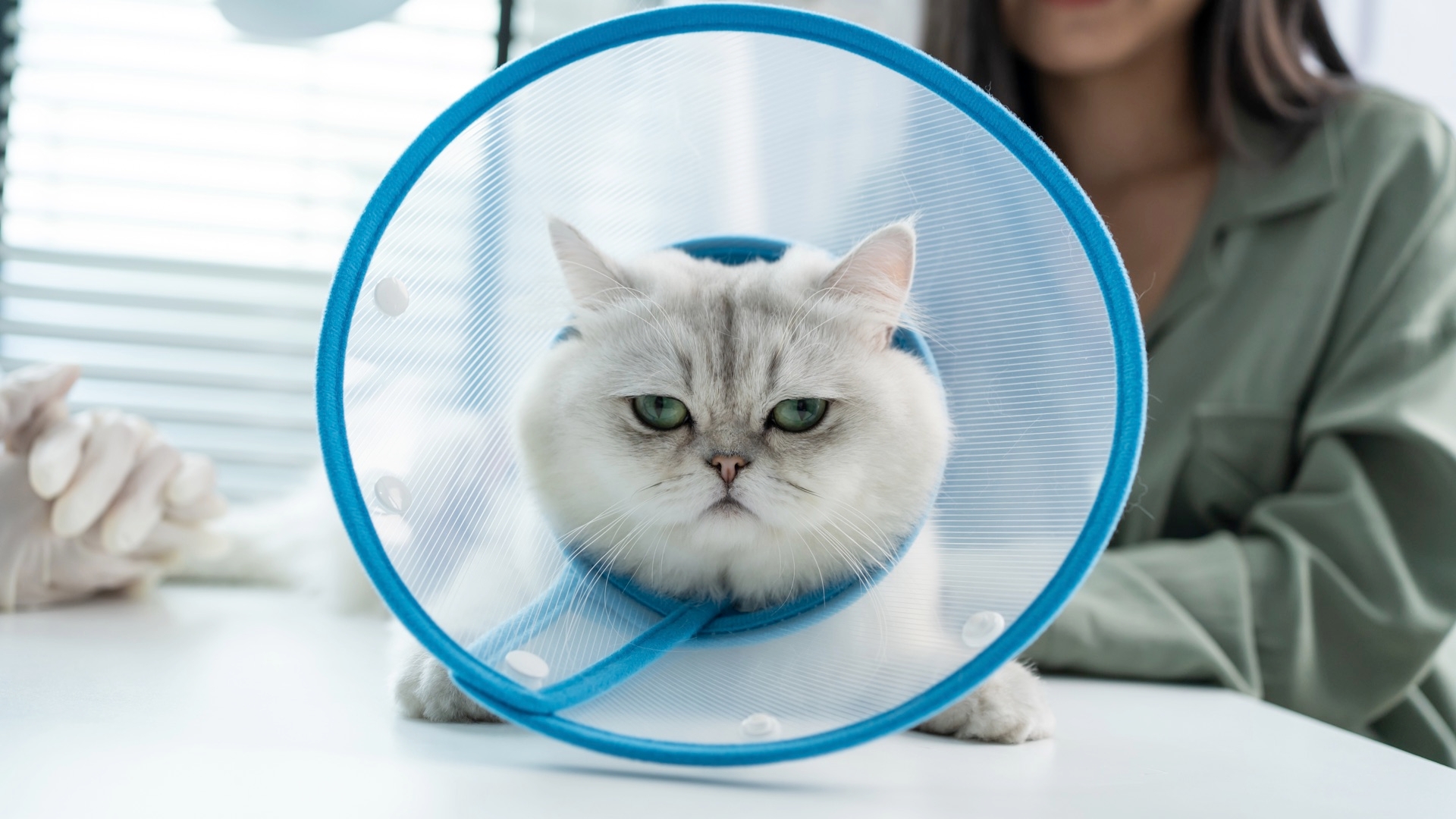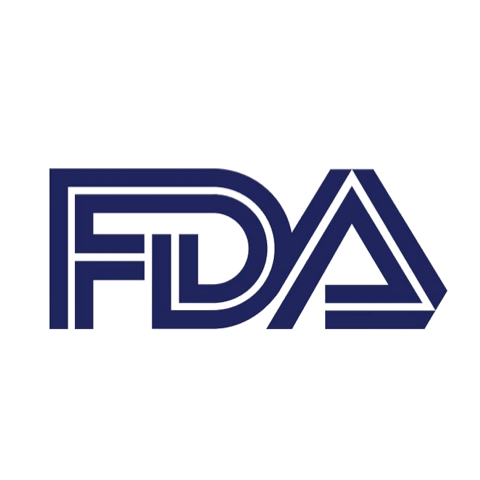Got Questions About Your Pet's Health?
Animal Presciptions And Pet Foods
Summary:
Do you have questions about the drugs your veterinarian prescribes for your pet? Do you have questions about how and where to report a problem with an animal drug or pet food? If you're traveling with your pet—do you know where to get travel requirement information?


Do you have questions about the drugs your veterinarian prescribes for your pet? Do you have questions about how and where to report a problem with an animal drug or pet food? If you're traveling with your pet—do you know where to get travel requirement information?
The Food and Drug Administration's Center for Veterinary Medicine (CVM) regulates animal drugs and animal food (including pet food), conducts research that helps shape its regulatory activities.
Below are nine frequent questions pet owners ask.
How do I know if a drug I am giving my pet is FDA-approved?
Look at the drug's label. All FDA-approved animal drugs have:
- a New Animal Drug Application (NADA) number,
- an Abbreviated New Animal Drug Application (ANADA) number for generic drugs, or
- a Conditional New Animal Drug Application (CNADA) number for conditionally approved drugs.
Many drug manufacturers currently list the six-digit NADA or ANADA number and the statement, "Approved by FDA," or the six-digit CNADA number followed by "Conditionally approved by FDA" on the drug's label. By the end of September 2023, all drug manufacturers will be required to list this information on the label of every approved animal drug.
If you don't have a label, or you don't see an application number, then you can check FDA's searchable online database, Animal Drugs @ FDA. Most FDA-approved animal drugs are listed in this database.
My pet had a bad reaction to a drug. How do I report this?
If you suspect your animal has had a bad reaction after taking a drug, the first thing to do is to contact your veterinarian immediately. If your veterinarian is not available, you may need to contact your local emergency animal hospital.
The FDA also encourages pet owners and veterinarians to report side effects and product defects to the agency. Data from these reports help the FDA monitor product safety and investigate potential drug-related problems. Every report that comes to us is important. There are two ways you can report bad reactions and side effects, lack of effectiveness, or other product defects (such as broken tablets or leaky dispensers):
- Call the drug company to report a problem with an FDA-approved drug. You can usually find the company's phone number on the drug's label. Give the reason for your call and ask to speak to a technical services veterinarian.
- Report the issue to the FDA using form FDA 1932a. Form FDA 1932a is an electronic, fillable form that can be emailed to the CVM. Instructions on how to use the form can be found on CVM's website.
You can call or email the CVM if you have questions about reporting unexpected reactions or side effects or need a hard copy of the form. Don't forget to leave your name, physical address, email address, and phone number.
Any report you make to the FDA is confidential.
Phone: 1-888-FDA-VETS
Email: AskCVM@fda.hhs.gov
Why do I need a prescription from my veterinarian to purchase pet drugs from a regular or online pet pharmacy?
Prescription drugs are prescription for a reason. These medications require a veterinarian's expertise to:
- diagnose the condition being treated,
- monitor the pet's response to treatment,
- and monitor the pet for side effects.
Under the Federal Food, Drug, and Cosmetic Act, the law which provides much of the FDA's regulatory authority, a pet pharmacy can't sell you a prescription animal drug without a valid prescription or other type of order from a licensed veterinarian.
Does the FDA make recommendations about my pet's health and how to treat him or her?
Unfortunately, no. The CVM is a regulatory agency and does not give veterinary medical advice. If your pet is sick, contact your veterinarian or an emergency animal hospital for help. If your pet ate something that may be harmful, you can also reach out to one of the animal poison control centers for advice.
- Pet Poison Helpline, 855-764-7661, http://www.petpoisonhelpline.com
- ASPCA Animal Poison Control Center, 888-426-4435, www.aspca.org/pet-care/animal-poison-control
If you have other questions about your pet's medications or food, you can ask CVM experts by email or telephone: (240) 402-7002.
How does the FDA regulate pet food?
The Federal Food, Drug, and Cosmetic Act requires all animal foods, like human foods, be safe to eat, produced under sanitary conditions, contain no harmful substances, and be truthfully labeled.
Canned pet foods must be processed according to low acid canned food regulations to ensure they don't contain live bacteria. Pet food products do not have to be FDA approved.
You can find more information how the FDA regulates pet food on the CVM's Pet Food webpage.
I suspect my pet had a bad reaction to a food. How can I report this?
You can report complaints about a pet food product online or by calling your state's FDA Consumer Complaint Coordinator.
Have information ready such as:
- product name, type of package, lot number, where purchased;
- a description of the problem such as odor, color, or foreign object found;
- and a description of your animal, such as weight, age, and breed.
If you can, save the leftover pet food in its original container in case the FDA wants to test it. This includes pet treats, which are considered pet foods and are regulated by the FDA.
I want to make pet treats at home. What should I know?
It's okay to make pet treats at home for your own animal's use. However, the manufacture and sale of treats—whether at a local market, a farmer's market, a retail store, or on the internet—are subject to federal, state, and local regulation. You can learn more about requirements for selling pet treats from the Association of American Feed Control Officials and CVM's webpage.
If you're making treats for your pets, be aware that certain ingredients may be harmful, including chocolate, avocado, raisins and grapes, macadamia nuts, onions, garlic, and Xylitol.
Xylitol (also known by other names including "wood sugar," "birch sugar," or "birch bark extract") is a sugar substitute used in human foods such as gum, breath mints, and some peanut butter brands. It's toxic to dogs and shouldn't be used in your pet treats.
You can find more information about potentially harmful foods for dogs in our "Good Dog, Bad Food: Foods for People That Are Bad for Your Dog" article.
The FDA gets a number of questions about traveling with a pet, can FDA give me some recommendations?
Information on traveling with your pet or taking a pet overseas falls within the jurisdiction of the U.S. Department of Agriculture. Additional information can be found on the U.S. Department of Agriculture's Animal and Plant Health Inspection Service website.
Does the FDA regulate medicated shampoos for animals? What about non-medicated shampoos?
The FDA does regulate medicated shampoos but does not regulate "cosmetic" shampoos for animals.
For example, if a grooming aid is intended for any therapeutic (medical) purpose, such as to control a fungal infection such as ringworm or itching caused by allergies, it would be regulated by the FDA as a drug.
The animal counterpart of a cosmetic is commonly called a "grooming aid" and is not regulated by the FDA. These include products solely intended for regular bathing, such as a dog or cat shampoo, or to make the pet look show-ring ready, like a spray that makes the fur shine.


